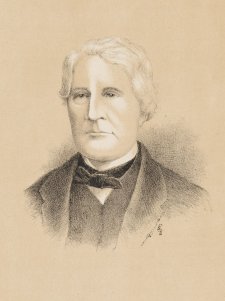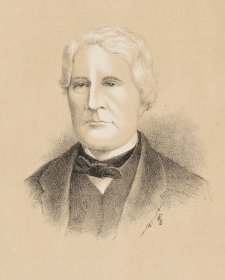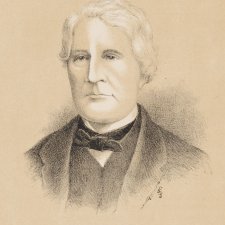William Wentworth (1790-1872) was a landowner, barrister and statesman. He was born on the way to Norfolk Island to a convict, Catherine Crowley, and D'Arcy Wentworth, who was travelling as the ship's doctor. His mother died when he was ten, and he was educated in England, where he was acknowledged by his father's elevated connections. Returning to Sydney in 1810, he gained a government appointment and a grant of land on the Nepean River. In 1813 he crossed the Blue Mountains with William Lawson and Gregory Blaxland, an expedition that not only led to the opening up of huge areas of New South Wales for grazing, but saw Wentworth personally rewarded with further acreage. In England and Europe for eight years, he studied law and wrote a tract promoting emigration to the Australian colonies. He had already written a number of anonymous pieces criticising prominent figures and on his return to Sydney in 1824, he co-founded the colony's first independent newspaper, the Australian, which attacked the regime of Governor Darling, campaigned for representative government and trial by jury, and championed the emancipists against the exclusives, characterised by Wentworth as the 'yellow snakes of the colony'. In the late 1820s he defended himself scintillatingly against libel charges. A huge landowner and popular hero by 1831, Wentworth threw a party for 4 000 people at his home in Vaucluse at the end of Darling's term. In the 1830s he prepared several drafts of an amended constitution for the colony, which had long been his dream. A member of the Legislative Council from 1843, between 1848 and 1850 he moved to set up state primary education in the colony, and also to establish the University of Sydney. He chaired the select committee that drafted a constitution for a self-governing New South Wales in 1853. Having made a fundamental contribution to the subsequent shape of Australian democracy, for his last eighteen years he lived mostly in England.







